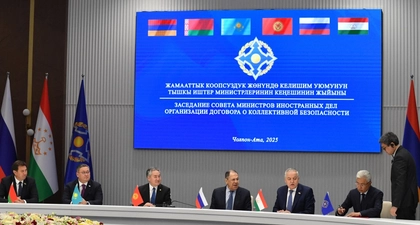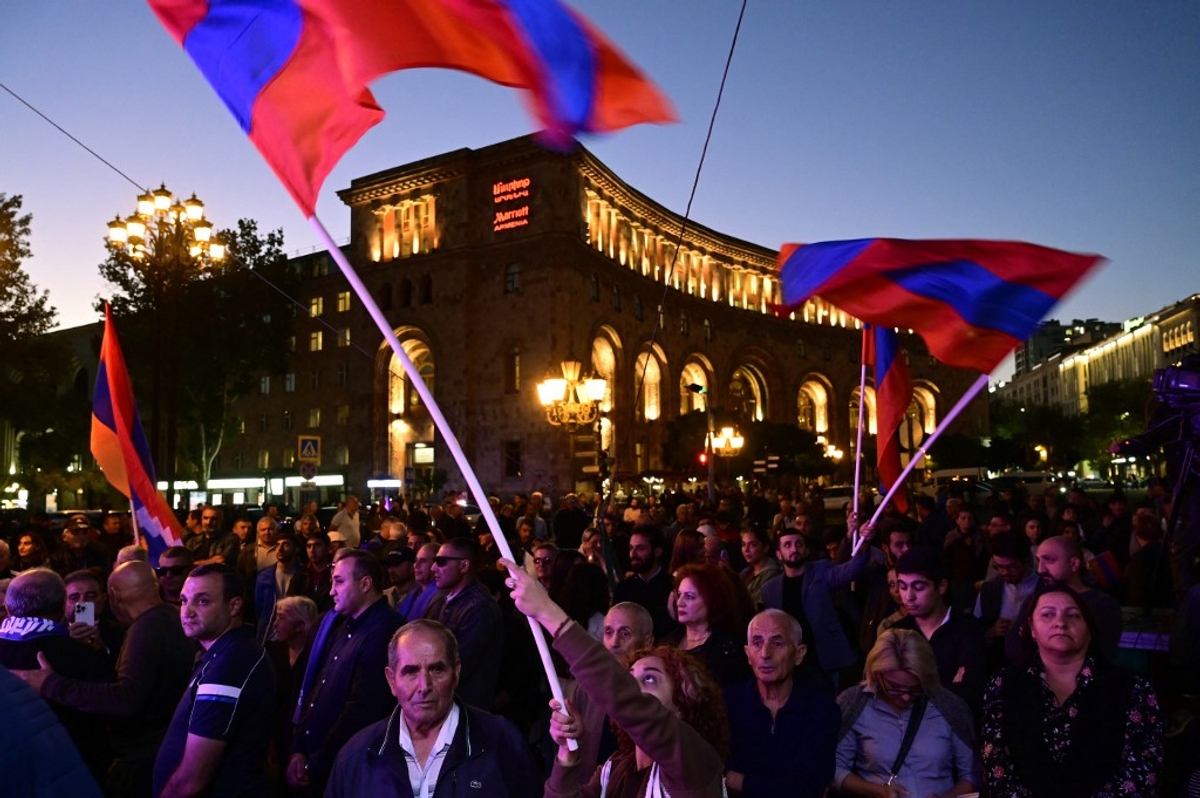Armenia has become the epicenter of political and societal turmoil in recent months. Tensions between Prime Minister Nikol Pashinyan and the Armenian Apostolic Church have escalated sharply, triggering arrests of clergy members and opposition-linked billionaires, as well as mass protests across the capital Yerevan.
The crisis was sparked when Prime Minister Pashinyan publicly called for the resignation of Catholicos Karekin II, the spiritual leader of Armenia’s Apostolic Church. Pashinyan accused him of violating his vow of celibacy and fathering a child – a claim the Church vehemently denied.
Follow our coverage of the war on the @Kyivpost_official.
In response, high-ranking clergy mobilized thousands of supporters in the streets of Yerevan. Among the most prominent was Archbishop Bagrat Galstanyan, the leader of the movement called “Sacred Struggle.” He was arrested on June 25. Authorities claimed that Galstanyan had allegedly formed a 200-person armed group made up of former soldiers and police, intending to overthrow the government.
Shortly thereafter, another senior cleric — Archbishop Mikael Ajapahyan – was also detained. He is accused of calling for a violent uprising and is currently being held in pre-trial detention.
These arrests came on the heels of large-scale protests in the capital, where tens of thousands marched, calling for Pashinyan’s resignation. In one dramatic episode, demonstrators in Etchmiadzin physically blocked police from arresting Archbishop Ajapahyan by forming human chains and ringing church bells in defiance.

Other Topics of Interest
Let the World Know What a Worthless Ally Russia Is
There’s a reason why countries long to be in NATO. Apart from fearing Russia, they also understand that Russia’s alternative alliance has become a farce.
The arrest of an oligarch and the threat of nationalization
On June 18, Russian-Armenian billionaire Samvel Karapetyan — a long-time benefactor of the Armenian Church — was arrested. He had publicly criticized Pashinyan and warned that he “would not allow violence against the Church.” The government accused him of inciting the unconstitutional overthrow of power.
Following Karapetyan’s arrest, Pashinyan announced plans to nationalize Armenia’s main electricity distribution company, Electric Networks of Armenia – which Karapetyan owns. The move is seen by many as a retaliatory strike and an attempt to further weaken the Church’s influence and resources.
Russia’s long shadow
The crisis comes amid Armenia’s growing pivot toward the West, as Pashinyan seeks deeper ties with the EU and distances the country from Russia — Armenia’s traditional security guarantor and former colonial power.
Russian state media have portrayed the Church as a defender of Armenian sovereignty and tradition, while casting Pashinyan as a Western puppet risking national collapse.
Russia is watching Armenia’s internal crisis with great interest. Kremlin spokesperson Dmitry Peskov stated that Moscow is “concerned” and supports stability in the neighboring country.
Many Russian analysts view Pashinyan’s pro-Western agenda — including closer ties with the EU and improved relations with Azerbaijan and Turkey — as a threat to Armenia’s historic alliance with Russia. In their eyes, the current turmoil is the consequence of Armenia drifting away from Moscow’s orbit.
EU-Armenia relations reach new heights as Yerevan eyes membership
Against this backdrop, on June 30, the European Union’s High Representative for Foreign Affairs and Security Policy, Kaja Kallas, visited Armenia.
“I came here with a clear message: the EU and Armenia have never been closer than we are today,” Kallas said in Yerevan following a meeting with Armenian Foreign Minister Ararat Mirzoyan.
Kallas welcomed Armenia’s readiness to deepen its partnership with the EU, emphasizing that the relationship now extends beyond economic cooperation. She noted that the dialogue includes progress toward visa liberalization, with the European Commission having already adopted a roadmap for that process.
The visit comes just months after a landmark vote in Armenia’s parliament. On March 25, lawmakers approved a resolution to begin the process of EU accession, a move widely seen as a historic pivot away from Russia’s sphere of influence.
During Mirzoyan’s May visit to Brussels, the European External Action Service described EU-Armenia relations as advancing at an “unprecedented pace,” underscoring a regional shift as Armenia reorients toward Western institutions.
A nation at a crossroads
Armenia, a country of just under 3 million people, stands at a crossroads — forging a new path aligned with Western integration and reform.
The outcome of the crisis could reshape Armenia’s political landscape — and affect the regional balance of power at a time when Russia’s role in the Caucasus is increasingly in flux.
